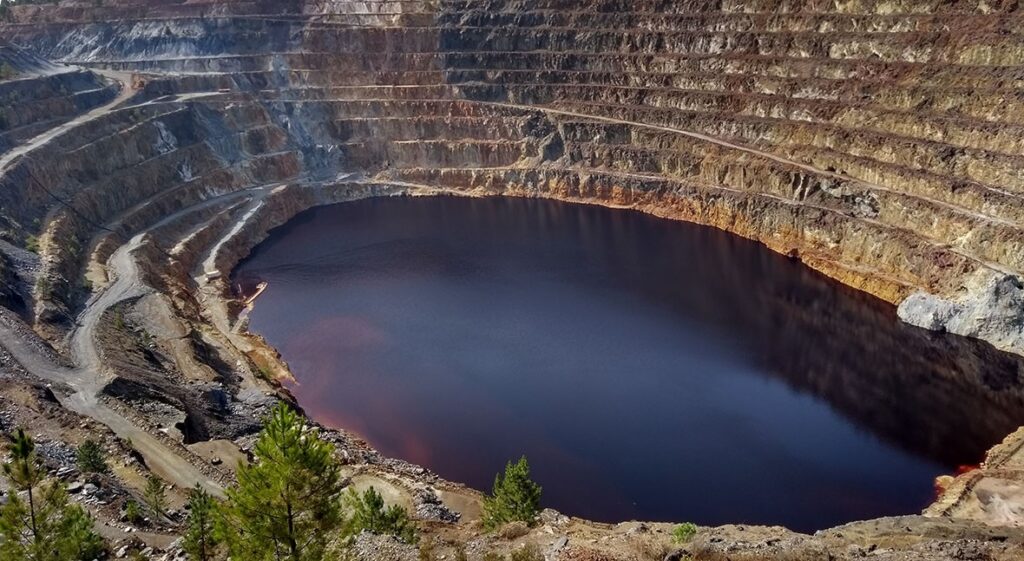
India’s mining industry plays a crucial role in the nation’s economy, contributing significantly to industrial development and infrastructure. However, the sector faces unique challenges, particularly regarding water management. Effective water storage solutions are essential to address these challenges, ensuring sustainable mining practices and minimizing environmental impact. This article explores the specific water storage requirements of India’s mining sector and presents tailored solutions to meet these needs.
Unique Water Storage Requirements in the Mining Sector
High Water Demand: Mining operations, particularly those involving mineral processing, require substantial volumes of water. From ore extraction and transportation to beneficiation and cooling, water is integral at every stage. The demand fluctuates based on the scale of operations, mineral type, and processing techniques, necessitating robust and scalable water storage solutions.
Variable Water Quality: Water used in mining operations can become contaminated with sediments, chemicals, and other pollutants. This variability in water quality means that storage systems must be equipped to handle and treat water to prevent contamination of natural water sources and to meet regulatory standards.
Seasonal and Geographical Challenges: India’s diverse climate, ranging from arid regions to monsoon-heavy areas, affects water availability and storage needs. Mining operations in arid regions may face severe water shortages, while operations in monsoon-prone areas need to manage excess water to prevent flooding and soil erosion.
Environmental and Regulatory Compliance: Mining operations must adhere to stringent environmental regulations aimed at protecting water resources and ecosystems. This includes ensuring that water storage systems do not lead to contamination of surrounding areas and that any discharge meets regulatory standards.
Tailored Water Storage Solutions
Adaptive Reservoirs: For regions with high water demand, such as large-scale mining operations, adaptive reservoirs can provide a flexible solution. These reservoirs can be designed with variable capacities to accommodate fluctuating water needs. They often feature advanced liner systems and sediment management technologies to ensure water quality and minimize leakage.
Modular Storage Systems: In areas where space is limited or where rapid deployment is necessary, modular storage systems offer a practical solution. These systems consist of prefabricated, transportable tanks or containers that can be quickly assembled and adapted to changing requirements. Modular systems can be used for both storage and treatment, making them versatile and efficient.
Rainwater Harvesting and Recycling: Implementing rainwater harvesting systems can be particularly effective in regions with significant monsoon activity. Captured rainwater can be stored in large tanks or underground reservoirs and used to supplement mining operations during drier periods. Additionally, recycling and reusing water within the mining process can reduce the overall demand and environmental footprint.
Tailings Management Solutions: Tailings, the byproducts of mining processes, often require substantial water for transport and management. Tailings storage facilities (TSFs) should be designed to safely contain these byproducts while minimizing water usage. Techniques such as thickened tailings or dry stacking can reduce the water content in tailings, thereby decreasing the overall water storage needs.
Advanced Treatment Technologies: Given the potential contamination of water used in mining, advanced treatment technologies are essential. These include filtration systems, chemical treatment processes, and biological treatment methods. Investing in high-quality treatment facilities ensures that stored water meets safety and environmental standards.
Integrated Water Management Systems: A holistic approach to water management involves integrating storage solutions with real-time monitoring and control systems. These systems can track water usage, quality, and storage levels, allowing for better planning and immediate response to any issues. Such integration supports both operational efficiency and regulatory compliance.
Conclusion
Effective water storage is vital for the sustainable operation of India’s mining industry. By addressing the sector’s unique requirements—ranging from high water demand and variable quality to seasonal and geographical challenges—tailored solutions can enhance operational efficiency and environmental stewardship. Adaptive reservoirs, modular storage systems, rainwater harvesting, tailings management, advanced treatment technologies, and integrated management systems represent a comprehensive approach to meeting these needs. As India’s mining industry continues to evolve, these solutions will play a key role in ensuring that water resources are managed responsibly and sustainably.


